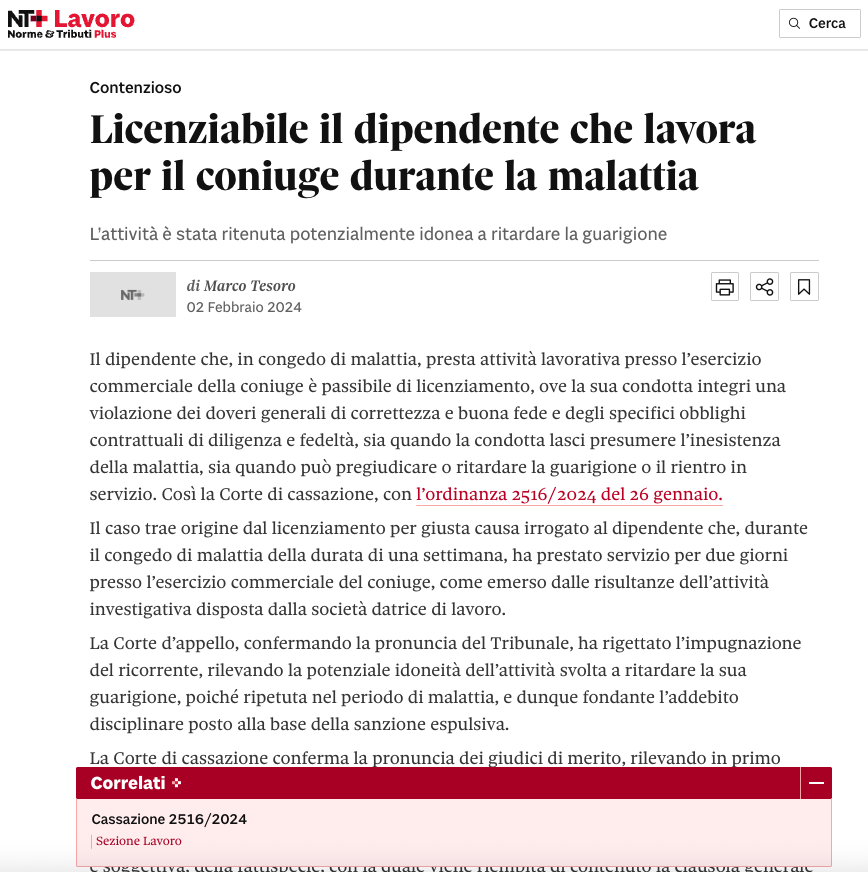Related Posts
Gruppo 24Ore2 April 2025
The criminal significance of the conduct is irrelevant for the purposes of just cause for dismissal.
Pubblicato su: Il Sole24Ore – Nt Lavoro – 02/04/2025 Leggi qui
Gruppo 24Ore5 November 2024
For mitigated reinstatement, the analogous extension of the provisions of the National Collective Labour Agreements is legitimate.
Pubblicato su: Il Sole24Ore – Nt Lavoro – 05/11/2024 Leggi qui


